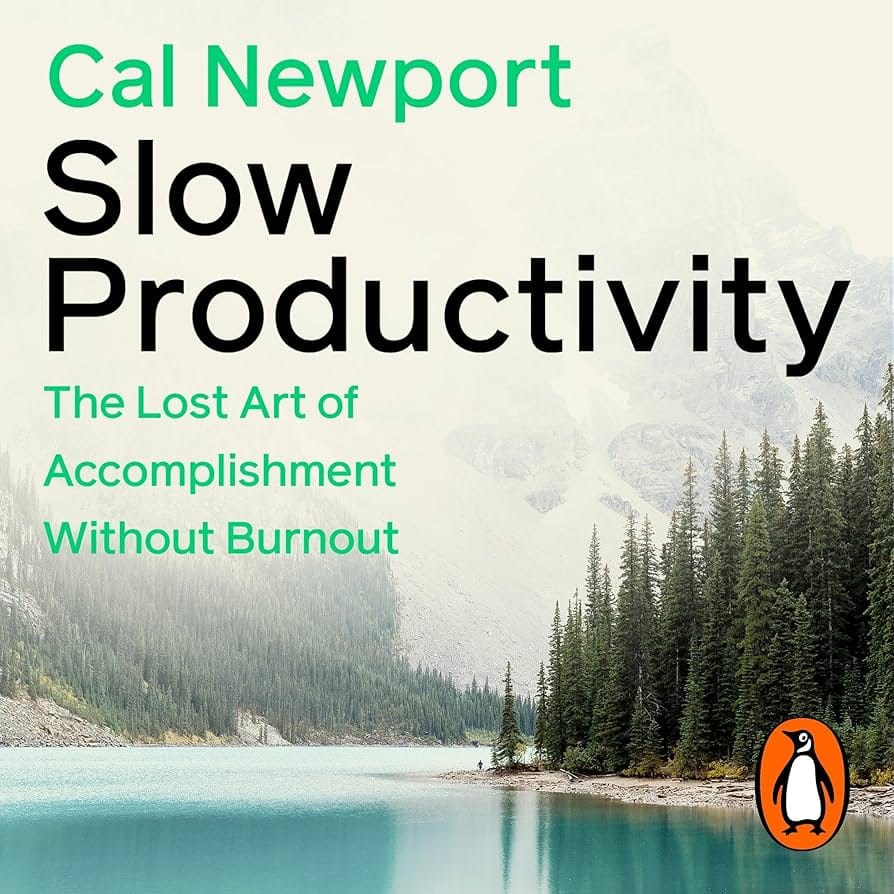The first time I recall seeing real pastoral leadership, it came with a power cord and the smell of industrial carpet cleaner.
I was twelve and starting to become convinced I was destined to be the next John the Baptist, heralding in the second coming of Christ (religious trauma starts early when you grow up fundamentalist). Wednesday night youth group had just ended and I was lingering, waiting to be picked up my parents.
That's when I found Pastor Dan Cloud pushing a vacuum across the fellowship hall, methodically working around folding chairs and scattered Goldfish crackers. My twelve-year-old brain short-circuited. "Wait," I said, "you're the pastor. Are you supposed to be doing that?"
He paused, smiled, and said: "Of course. I'm here to serve, not to be served."
He was quoting Jesus, naturally. But in that moment, watching this wise, funny, kind man who had taken notice of a Bible-obsessed kid, I learned something about power that too many leadership books never teach.
Real spiritual authority flows downward.
The Anti-CEO Manifesto
25 “I know that none of you will see me again—you among whom I traveled and proclaimed the kingdom.26 Therefore, today I testify to you that I’m not responsible for anyone’s fate. 27 I haven’t avoided proclaiming the entire plan of God to you. 28 Watch yourselves and the whole flock, in which the Holy Spirit has placed you as supervisors, to shepherd God’s church, which he obtained with the death of his own Son.[a] 29 I know that, after my departure, savage wolves will come in among you and won’t spare the flock. 30 Some of your own people will distort the word in order to lure followers after them. 31 Stay alert! Remember that for three years I constantly and tearfully warned each one of you. I never stopped warning you! 32 Now I entrust you to God and the message of his grace, which is able to build you up and give you an inheritance among all whom God has made holy. 33 I haven’t craved anyone’s silver, gold, or clothing. 34 You yourselves know that I have provided for my own needs and for those of my companions with my own hands. 35 In everything I have shown you that, by working hard, we must help the weak. In this way we remember the Lord Jesus’ words: ‘It is more blessed to give than to receive.’”
36 After he said these things, he knelt down with all of them to pray. 37 They cried uncontrollably as everyone embraced and kissed Paul. 38 They were especially grieved by his statement that they would never see him again. Then they accompanied him to the ship. Acts 20
This morning, I'm reading Acts 20, Paul's farewell speech to the Ephesian elders. Notice what's missing from Paul's leadership vocabulary
- decision-making
- being in charge
- final say
- authority structures
The power dynamics that consume so much pastoral energy simply aren't there. Instead, Paul uses words like:
- shepherd
- keep watch
- protect
- nurture
When Jesus tells Peter to "feed my sheep," that's not organizational strategy. That's love language. It's caretaking vocabulary, not boardroom speak.
Paul himself worked with his own hands to support his ministry, giving his labor away for free. And when he left? People wept. Not because they were finally free of his sleep-inducing sermons, but because they would miss him. That's the test, isn't it? When your spiritual leader moves on, do people grieve the loss or secretly plan a celebration?
The concept of "headship"—a word that's been weaponized to justify everything from spousal abuse to pastoral authoritarianism. But the Greek word kephalē doesn't primarily mean "boss" or "authority figure." In Ephesians 5, when Paul talks about husbands being the "head" of their wives, he's not establishing a power hierarchy. He's talking about sacrificial love that mirrors Christ's self-giving.
From the perspective of first-century medical theory, the head serves the body. It protects, nourishes, ensures the health of the whole. A head that demands the body serve it is a tumor, not leadership.
We've can't turn biblical headship into corporate headship.
The Effectiveness Trap
Now, I'll admit that this all can get complicated. Pastors do in fact need to be effective leaders. Churches are organizations that require vision, coordination, strategic thinking. Someone has to make sure the lights stay on and the bills get paid and the children's ministry doesn't devolve into Lord of the Flies chaos.
But effectiveness can't be confused with empire-building. Bigger numbers, fatter budgets, wider "influence"—these might indicate organizational success, but they're terrible metrics for spiritual leadership. The effectiveness that matters looks like love, care, compassion, lifting up the marginalized. It looks like creating communities where the wounded find healing and the excluded discover belonging.
As our co-director at TableKIDS, Erin Byrne, puts it: "We want to create ease for one another."
If you want a village, you have to be willing to be a villager.
This doesn't mean pastors should burn themselves out trying to do everything. Sustainable ministry requires collaborative leadership, shared responsibility, systems that distribute both power and labor. The goal isn't pastoral martyrdom—it's pastoral presence.
When I came to The Table, I heard stories about the previous pastor's burnout, his increasing distance from the daily life of the church. So I swung hard in the opposite direction, making myself as available as possible. I had hoped that I wouldn't ever advertise my tech skills, wanting to be known first as someone who cared about people, not someone who fixed problems.
Then the pandemic hit, and suddenly we were building livestreams from scratch, learning video software at 2 AM, becoming the church's reluctant IT department.
For a couple years, I exhausted myself every Sunday—setting up equipment, troubleshooting audio, tearing down, solving technical crises, all while trying to connect pastorally with people. Eventually, I had to step back from some of the tech support. But I also don't refuse to wrap a cable when the time comes.
That balance—being willing to serve while building sustainable systems—is where pastoral leadership lives. It's contextual, nuanced, requiring wisdom about when to pick up the vacuum and when to ask someone else to help.
The problem isn't pastors who delegate. It's pastors who use their position as an excuse to avoid the small tasks, the unsexy work, the moments that require them to get their hands dirty.
The Imitation Game
Paul tells the Ephesian elders he's given them "an example worth imitating." Not a vision to follow or a program to implement—an example. A way of being in the world that others might want to copy.
When I look at the spiritual leaders who've shaped me, few of them impressed me with their authority. They impressed me with their humanity. Dan Cloud with his vacuum. Bruce the worship pastor who drove my mom to the hospital in the middle of the night when she was sick and stayed until my dad arrived. John who invited Emily and I to his house for Thanksgiving and treated us like family because our family was so far away.
They served. They protected. They gave themselves away.
The questions worth asking about any leader—pastoral or otherwise—aren't complicated: Do they serve or just perform? Do they protect or self-promote? Do they give themselves away or only build themselves up? That's the difference between a shepherd and someone just playing the part.






Discussion